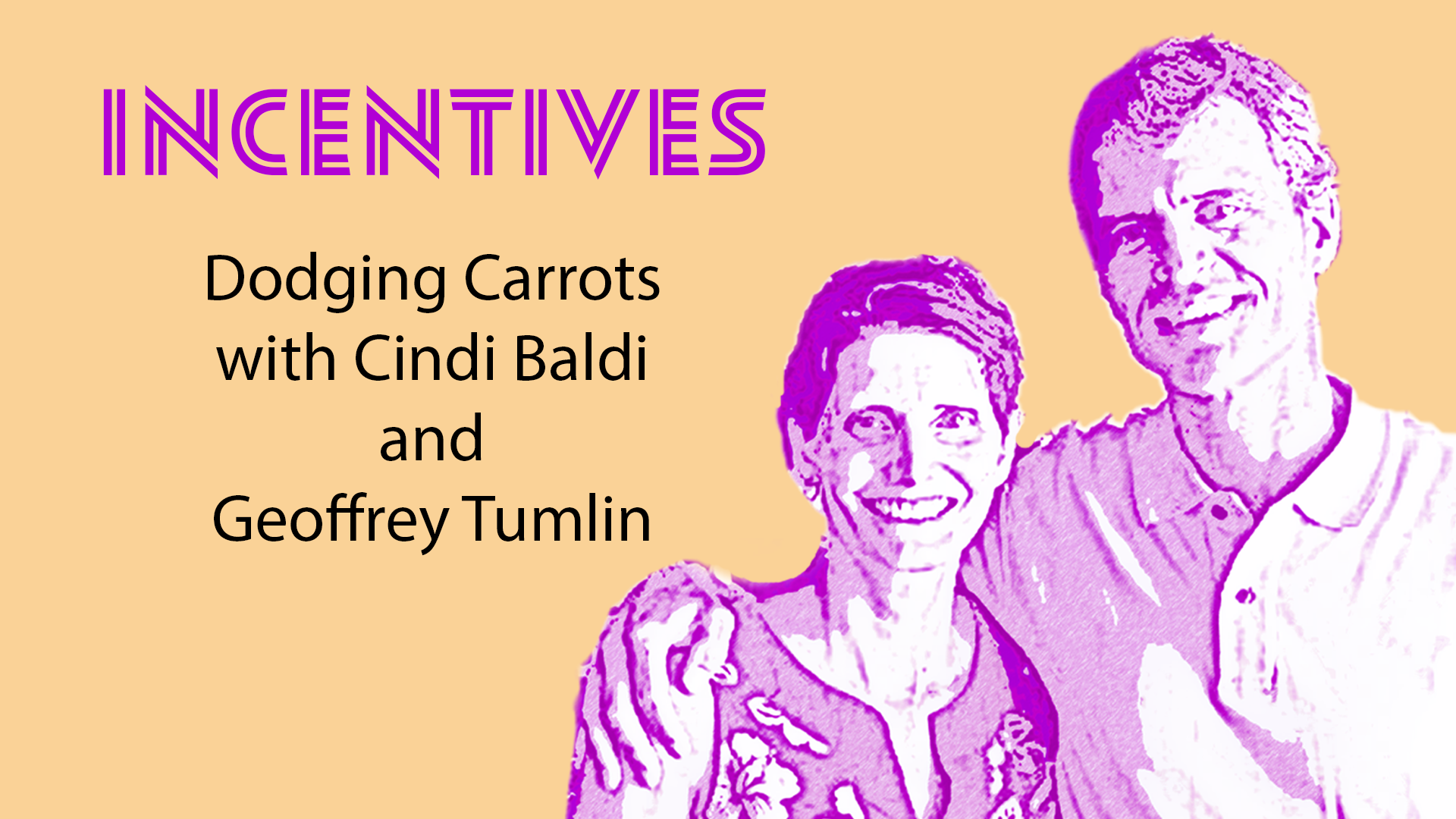What do a slot machine, a cynical worker, and quirky management paper all have in common? Tune in to find out.
Show Notes
Organizational incentives are tricky, in at least eight counterproductive ways. This episode of Management Muse is inspired by“On the Folly of Rewarding A, While Hoping for B,” a timeless article written by Steven Kerr in the 1970s, this episode provides eight classic examples of incentives that frequently are either misplaced, distorted or internally inconsistent:
- Demanding teamwork but rewarding individual achievement.
- Valuing diversity but continuing to hire the same types of people.
- Encouraging merit and excellence, but doling out paltry, across-the-board increases that reward no one.
- Rallying employees to show customer love, but internally communicating dismissiveness or disrespect towards those very same customers.
- Asking for innovation and experimentation but executing on trusted old ideas.
- Claiming to value women in the workplace, but perpetuating schedules and policies that disadvantage them.
- Asking for loyalty to the organization, but rewarding free agency.
- Asking for candid feedback but responding much more positively to butt-kissing.
In this episode, Cindi and Geoff offer thoughts for anyone who has ever been confused by mixed organizational messages.
Episode Highlights:
- Organizations don’t mean to be contradictory, but incentives are so tricky they often tie well-meaning managers in knots.
- Managerial goals don’t always correlate with desired outcomes.
- Data analytics can be a double-edged sword, as goals and measures may alienate the very employees they’re designed to help.
- Employee evaluations are often skewed by comingled rewards and flawed productivity measures.
- Feedback and introspection can often illuminate inconsistent corporate incentives.
Timestamps:
[1:00] The classic article behind this conversation, “On the Folly of Rewarding A, While Hoping for B,” by Steven Kerr.
[03:15] Measuring outcomes is often hard because managers want teamwork, but reward individual achievement.
[04:50] People are endlessly creative, so you can’t just set your incentive plans and forget about them.
[06:45] Managers often wrestle with: how to encourage better teamwork, elicit more creativity, enhance productivity, compensate people, and when and how to administer discipline.
[08:05] Walking the line between directing employee goals and providing for input and autonomy.
[09:19] Over-measuring and over-evaluating can backfire, spurring passive-aggressive responses from people who don’t want to constantly be under the microscope.
[11:48] Cindi and Geoff discuss safe hires vs. hard hires, and why the distinction matters.
[13:30] Diversity across multiple fronts—age, race, perspective, experience, and others—broadens knowledge and experiences, and may reveal different (and previously unrecognized) pain points and opportunities. Cindi and Geoff discuss organizational diversity, and how incentives can unintentionally get in the way.
[16:32] Data, demographics, and communication patterns can shed light on areas of success and failure of organizational integration.
[18:56] How and what you measure requires intentionality and sensitivity to team members, who may feel overly scrutinized. Cindi and Geoff discuss getting your measure right.
[24:10] Employee evaluations are often based on flawed formulas. Cindi talks about strategies for better evaluations.
[26:58] Where raises go wrong, and how to fix them.
[29:30] Stop blaming customers. It messes with your employees’ perspectives.
[31:48] Another common incentive dichotomy: Organizations say that they want innovative ideas and experimentation but then recycle older ideas. It’s not necessarily a bad strategy because it’s prudent to balance exploration with exploitation (of known best practices), but there is an inherent inconsistency and self-limitation owing to time constraints and bandwidth.
[38:02] How to unwind workplace incentives that unintentionally penalize women.
[42:59] Another example of a misplaced incentive: Corporate leadership praises the idea of candor and people speaking up, until they say something unfavorable.
[45:34] Organizations say they want loyalty, but reward free agency. Cindi and Geoff suggest solutions to that skewed incentive.
[49:28] Cindi and Geoff close out the episode, and provide historical examples emphasize how incentives often go wrong, and how to get them right.
Episode Quotes:
“Organizations commonly say they want teamwork, but all of their reward systems and how they pay out and how they give praise are built on individual achievement.” – Geoffrey Tumlin
“A lot of corporations say they want diversity, but they hire the same old people.” – Geoffrey Tumlin
“One of the benefits of work-from-home is that the manager can see the difference in work productivity, but you don’t get the social penalty [from less productive workers who want to hold you back].” – Cindi Baldi
“If you really want your employees to treat customers with respect, then all the way through the organization leaders need to actually be talking about customers with respect.” – Cindi Baldi
“If we want new ideas and experimentation in corporations, it’s imperative that we create at least some space for people to feel like they’ve got the ability to run with an idea and not at the expense of producing.” – Geoffrey Tumlin
“Incentives are tricky. We have to get out of the mindset that we’re going to set up incentives and then just let it go because you have to swing back around (to look at) all the unintended consequences.” – Cindi Baldi
Episode Resources:
Resources on Related Topics
- Ryan, Richard M., and Edward L. Deci. “When paradigms clash: Comments on Cameron and Pierce’s claim that rewards do not undermine intrinsic motivation.” Review of educational research1 (1996): 33-38.
- Cameron, Judy. “Negative effects of reward on intrinsic motivation—A limited phenomenon: Comment on Deci, Koestner, and Ryan (2001).” Review of educational research1 (2001): 29-42.
- https://www.gallup.com/workplace/249332/harm-good-truth-performance-reviews.aspx
- https://ondemandleadership.com/strategic-planning/
- https://culsure.com/coaching/
KW: Leadership, Incentives, Rewards Systems, Culsure, Organization, Organizational, Management, Big Data, Outcomes, Productivity, Measurement, Evaluations, Employees, Customers, Assimilation.


